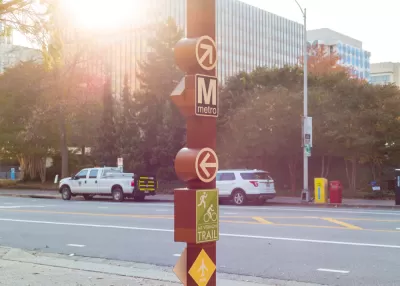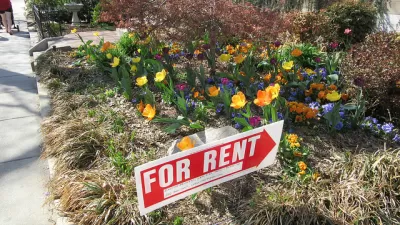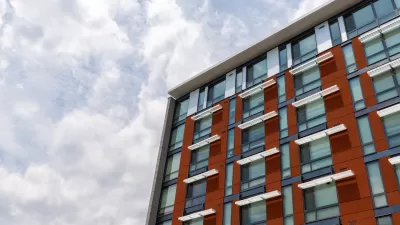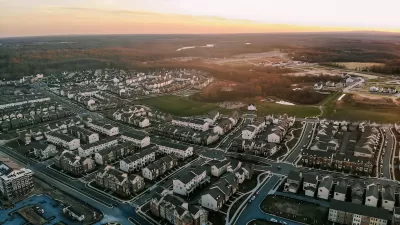Not all Metrorail station areas are zoned for transit oriented development.

Tracey Hadden Loh evaluates the transit oriented development efforts of the region surrounding Washington, D.C., specifically in locations surrounding Metrorail stations.
According to Loh, "there is still a lot of room for improvement—and I've found that some stations and jurisdictions are doing much better than others."
According to Loh's regional assessment, "international TOD prodigy Arlington County comes in last at first glance; why the urban core at the heart of the Metrorail system, the District of Columbia, had seven out of the top 15 most restricted stations; and why Montgomery County can and must do better at stations like Forest Glen."
To reach these conclusions, Loh examines zoning designations around the region's rail lines, and drills down into specifics on the case studies provided by Arlington and Montgomery counties. Also, Loh declares the Takoma Metrorail station as the Metrorail station surrounded by the most single-family zoning in the entire system.
FULL STORY: How well is the region doing at planning for growth near Metro?

Study: Maui’s Plan to Convert Vacation Rentals to Long-Term Housing Could Cause Nearly $1 Billion Economic Loss
The plan would reduce visitor accommodation by 25,% resulting in 1,900 jobs lost.

North Texas Transit Leaders Tout Benefits of TOD for Growing Region
At a summit focused on transit-oriented development, policymakers discussed how North Texas’ expanded light rail system can serve as a tool for economic growth.

Using Old Oil and Gas Wells for Green Energy Storage
Penn State researchers have found that repurposing abandoned oil and gas wells for geothermal-assisted compressed-air energy storage can boost efficiency, reduce environmental risks, and support clean energy and job transitions.

From Blight to Benefit: Early Results From California’s Equitable Cleanup Program
The Equitable Community Revitalization Grant (ECRG) program is reshaping brownfield redevelopment by prioritizing projects in low-income and environmental justice communities, emphasizing equity, transparency, and community benefits.

Planting Relief: Tackling Las Vegas Heat One Tree at a Time
Nevada Plants, a Las Vegas-based nonprofit, is combating the city’s extreme urban heat by giving away trees to residents in underserved neighborhoods, promoting shade, sustainability, and community health.

How Madison’s Tree Planting Efforts Are Growing a Healthier Community
Madison’s annual tree planting initiative is enhancing environmental resilience, public health, and community livability by adding 1,400 carefully selected trees citywide, with strong community and institutional support for urban forestry.
Urban Design for Planners 1: Software Tools
This six-course series explores essential urban design concepts using open source software and equips planners with the tools they need to participate fully in the urban design process.
Planning for Universal Design
Learn the tools for implementing Universal Design in planning regulations.
Ascent Environmental
Borough of Carlisle
Institute for Housing and Urban Development Studies (IHS)
City of Grandview
Harvard GSD Executive Education
Toledo-Lucas County Plan Commissions
Salt Lake City
NYU Wagner Graduate School of Public Service





























